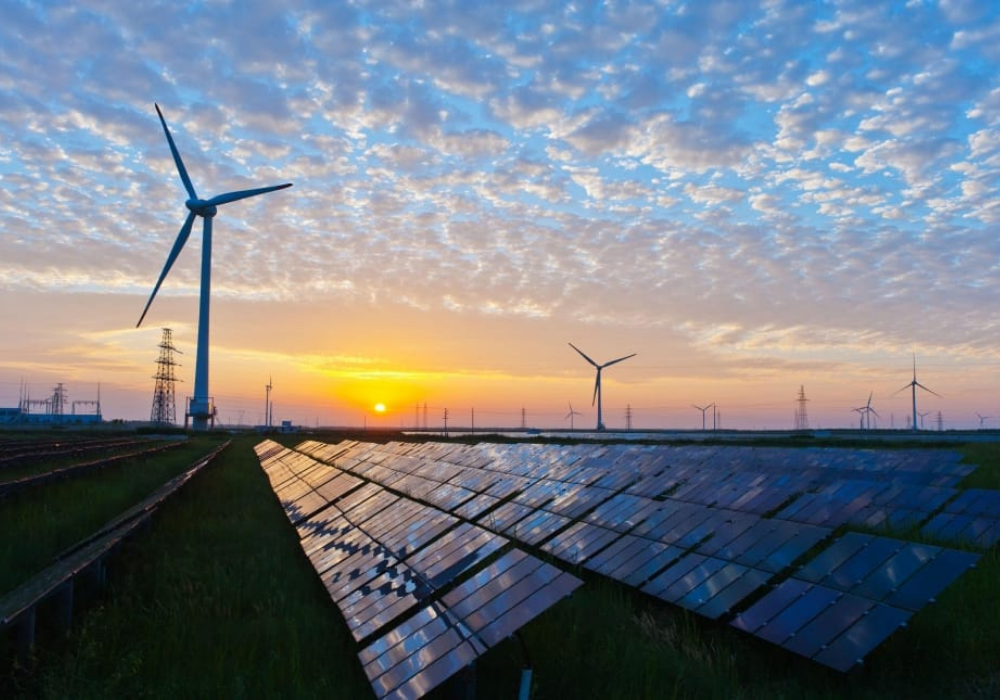
The net-zero emissions pledge put forward by South Korea for 2050 is “hugely aspirational and daunting”, says an energy analyst.
President Moon Jae-in made the carbon-neutrality commitment during a speech to the national assembly on Wednesday (28 October).
He said the East Asian nation, which relies heavily on fossil fuels to power its electricity grid, would bring an end to its coal dependency and replace it with renewables as part of the country’s Green New Deal that was announced back in July.
South Korea’s pledge followed in the footsteps of neighbouring country Japan, where Prime Minister Yoshihide Suga also set forth the ambition for carbon neutrality by 2050 on Monday (26 October).
UN’s Secretary-General “very encouraged” by net-zero emissions pledge by South Korea
According to energy researcher Wood Mackenzie, both countries have a similar fuel mix with an 80% share of hydrocarbons in their primary energy supply, while nuclear makes up 15% and renewables currently hold just a 2% share.
Speaking about South Korea and Japan’s net-zero pledges, Prakash Sharma, Wood Mackenzie’s Asia Pacific head of markets and transitions, said the goals are “hugely aspirational and daunting”.
While South Korea – the world’s seventh-highest polluter – plans to phase out nuclear and shut down coal-fired power plants in the long run, Sharma said the timeline is “not clear”.
He added: “This means a deep decarbonisation in South Korea will rely on faster adoption of new technologies. LNG will likely play a crucial role in South Korea’s transition.”
Stephane Dujarric, spokesperson for the UN’s Secretary-General Antonio Guterres, said the secretary-general is “very encouraged” by President Moon’s announcement.
“This is a very positive step in the right direction after Korea’s exemplary Green New Deal was announced in July,” he added.
“With this announcement, the Republic of Korea, the world’s 11th-largest economy and sixth-largest exporter, joins a growing group of major economies committed to lead by example in building a sustainable, carbon neutral and climate resilient world by 2050.”
South Korea will replace coal with renewables as part of its net-zero pledge
The commitment places South Korea as one of a number of nations to have now pledged to reach net zero by 2050, with China – the world’s biggest polluter – setting a target date of 2060 in September.
President Moon’s announcement comes after his party made a proposal back in April to make the commitment to carbon neutrality.
In his national assembly speech, President Moon said: “The government has pushed for strong policy to shift energy sources so far, but we still need to improve many things.
“We will go towards carbon neutral by 2050, taking action on climate change. We will replace coal power with renewable energy, creating new markets and industries as well as jobs.”

Kim Joo-jin, CEO of Seoul-based Climate Solutions, said the pledge finally moves South Korea “one step closer” to aligning itself with the reduction pathway compatible with the goals set out in the Paris Agreement, an international climate pact that aims to limit the rise in global temperatures to “well below” 2C by 2100.
“However, there is much to be done to make this declaration actually meaningful,” he added.
“The most urgent tasks are enhancing its 2030 emissions reduction target, presenting a clear roadmap to phase out coal by 2030, and putting a complete stop to coal financing.”
Coal power is currently the bedrock of South Korea’s electricity supply, accounting for about 40% of the country’s total energy mix.
It still has seven new coal power units under construction, which will inevitably make the net-zero challenge that bit harder.
But the country’s Green New Deal, which President Moon said will include 8tn South Korean won ($7.1bn) for green projects, vows to introduce a carbon tax, put an end to the financing of overseas coal plants and establish charging stations for electric and hydrogen vehicles, with the government planning to add 116,000 of those vehicle types across the next year.
South Korea’s established emissions trading scheme provides an “advantage”
With several countries around the world setting timelines to remove coal from their grids, investor appetite is rapidly shifting away from the high-polluting fossil fuel towards increasingly cheaper renewable alternatives.
But, according to Climate Solutions, South Korea is in the top three public financers for coal power projects overseas, most of which are in Asia.
Climate Solutions’ Kim Joo-jin believes the best solution would be to “immediately stop” the construction of new coal power plants domestically and financial support for overseas projects, while also looking to “rapidly reduce” the country’s existing fleet.
Wood Mackenzie has detailed a scenario modelling that would see South Korea reach its net-zero target in the next 30 years.
Under the scenario, electrification expands rapidly and is increasingly supplied by renewables, battery storage, hydrogen and carbon, capture and storage (CCS).
The researcher also envisions the transport sector becoming fully decarbonised by 2050 using electric vehicles and fuel cell vehicles, while the share of hydrocarbons is expected to fall to about 40% by 2050.
Wood Mackenzie’s Sharma said: “South Korea has an advantage. It already has an established emissions trading scheme in place.
“This is an important mechanism to deliver the changes required in the power and industrial sectors on the basis of cost and carbon, to reach net zero in emissions.
“Carbon price levels in South Korea currently hovers around $30 per tonne. We expect it to increase to upwards of $100 per tonne in order to deliver a net-zero emissions outcome.”






